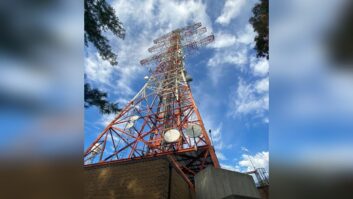A large portion of presentations at the National Association of Shortwave Broadcasters meeting, held in Washington, May 10–11 centered on the idea how shortwave radio — dismissed by some as in its last throes, a relic of the Cold War era disappearing under the shadow of digital — can find a place in the 21st century.
As many of the conference’s speakers argued, that answer may reside in areas with little electricity, where shortwave is seen as an effective means of relaying information to countries with repressive regimes. Presenting the results of a study on which audiences were tuning into shortwave across the globe, Dr. Kim Andrew Elliott, an audience research specialist at IBB, pointed out that in countries like Nigeria and Zimbabwe, people tended to own more radios than televisions.
In impoverished, politically tumultuous Zimbabwe, in fact, 32% of those who were surveyed, in a face-to-face, door-to-door method, own shortwave radios, according to Elliott.
Because shortwave radio is harder to interrupt than, for instance, the Internet, Radio Free Asia, the conference host, broadcasts to the highly censored areas like North Korea. The attendees of the conference, all representing different interests in the shortwave world, hailing from across the country, got a full tour of the RFA facilities.
Presenter Thomas Witherspoon, who founded Ears to Our World, a nonprofit based near Asheville, N.C., which supplies shortwave radios to developing, conflict-riddled nations like South Sudan, said, “I get asked all the time, ‘Why do you still use shortwave radio? That’s like something my grandpa had.’ People know by and large that it’s on the decline… We’re working in the places where it’s not on the decline as much.”
He said he was skeptical when people dismiss shortwave radio’s future on premises like “the Internet is everywhere.”
“I always like to think there’s an opportunity in this,” Witherspoon said. “We can look at all these reasons why (radio) is on the decline, or instead ways we can invest in shortwave radio and why we should do that. First of all, it’s affordable, and you broadcasters are doing it pretty efficiently.”
One of the conference’s few women attendees, Shahnaz Ghavami, of the FCC, said, “After sitting here today, it’s fascinating. It makes you think about shortwave as something new.”
A lengthier, more detailed recap of the conference will be available in an upcoming issue of Radio World.







